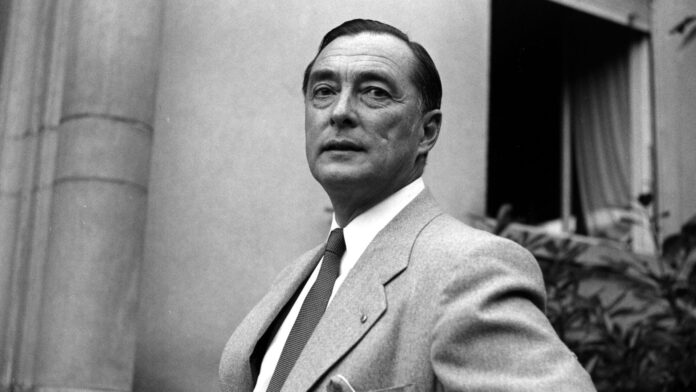Author: Martyn Bond
Affiliation: Author of ‘Hitler’s Cosmopolitan Bastard: Count Richard Coudenhove-Kalergi and his Vision of Europe’ (McGill-Queen’s University Press)
Organization/Publisher: Chatham House
Date/Place: April 2, 2021
Type of Literature: Argument
Word Count: 1905
Link: https://www.chathamhouse.org/publications/the-world-today/2021-04/eus-forgotten-grandfather
Keywords: European Union, Pan-Europa Union, Richard Coudenhove-Kalergi, Winston Churchill
Brief:
Martyn Bond gives insight into the life of the Austrian-Japanese author, philosopher, and politician Count Richard Coudenhove-Kalergi, who since the early 1920s devoted his life to establish a federal Europe. For this purpose, the Count travelled to Switzerland to meet Winston Churchill, who promised him a speech at Zurich University to introduce his pan European idea. Coudenhove-Kalergi wanted to establish “a kind of United States of Europe”, which should be based on a Franco-German partnership. In 1923 he founded the Pan-Europa Union and in that way popularized many of the European Union’s attributes, such as tariff-free trade, single passport, common currency, and Beethoven’s Ode to Joy as its anthem. Bond asks the question how it was possible that the English-speaking world knows so little about Coudenhove-Kalergi, who had Churchill as his supporter? After introducing his ideas to Britain in 1925, a debate occurred in the newspapers “pitting European integration against the Empire”. Britain clearly placed itself on the side of the Empire to avoid “dangerous consequences for the future of the Empire”. The Count had a further opportunity to introduce his idea in the first Pan-Europa Congress in Vienna in 1926, where more than two thousand elites from Europe demonstrated their support, but lacking British support. However, Churchill wrote on the united Europe in 1930 and stated that the Empire would be “with it, but not of it”. The French Premier Aristide Briand reformulated the idea to the League of Nations. After the Austrian Anschluss (Hitler’s annexation of Austria) in 1938, he travelled in Europe to organize opposition to Hitler. With American help, he and his family arrived in New York, where he had the opportunity to encourage President Truman to name European coordination as a condition for the Marshall Aid. After all, Coudenhove-Kalergi founded the European Parliamentary Union in 1947 and with British support the Council of Europe was achieved in 1949. Although Codeunhove-Kalergi was the initiator of the European Union, it was other officials who took the first steps towards the Union, such as Jean Monet, who is known as “the father of Europe”. Bond states that the Count’s name is nowadays unfortunately “perversely” attached to the “Kalergi-Plan”, a conspiracy theory currently popular in white supremacist circles that perceives mass immigration and cross-breeding as a threat to European identity. Martyn Bond concludes by asking the questions the Count already raised in 1923 and after 1945: Has Europe yet found an identity and a role, and will it – can it – develop a meaningful union without Britain? And what sort of role does Britain, seemingly pulled for the past century between continental and global ambitions, have now ‘outside’ Europe?
By: Dilek Yücel, CIGA Senior Research Associate




